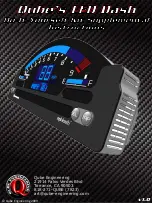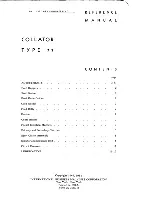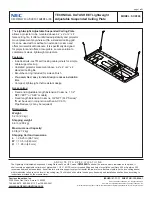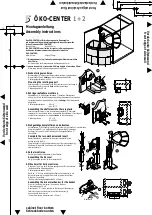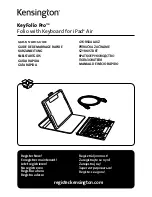
10
•
SmartSensor V User Guide
˿
Make sure all monitored lanes are within 9 to 200 ft. (2.7 to
61 m) of the sensor. Up to eight lanes can be detected.; if you
need more than eight lanes, consider using the SmartSensor
HD.
˿
If you’re putting a sensor on a road with stoplights or stop signs,
position the sensor toward middle of the block, to reduce the
likelihood of having stopped vehicles in the V radar footprint.
Figure 3.
Midblock installation
˿
Keep cable lengths in mind when you pick mounting locations;
when you use the Wavetronix cable, cables can be as long as
600 ft. (182.9 m) if you’re using 24 VDC and RS-485 communi-
cations; for longer connections, consider alternate wired and
wireless options.
˿
Consider timing: after a vehicle passes in front of the sensor,
there’s a slight delay before the data for that vehicle is sent
from the sensor. In a time-sensitive application, like supplying
a variable message sign with per vehicle warning messages,
make sure the sensor is far enough upstream from the sign that
the system has time to collect the data, process it, and send it
to the sign by the time the vehicles reach the problem area.
˿
See if you can take advantage of any existing infrastructure in
the area. The sensor can be mounted on existing poles (with
the exception of wooden poles and trees), as long as they fall
within the acceptable offset range. You may also be able to tap
into existing cabinets, power sources, and communication net-
works. All of these options could save you time and money.
For more information.
See the V support
section of the
Wavetronix website
to learn more about
cable lengths.




























